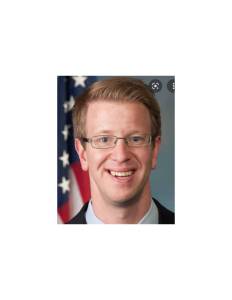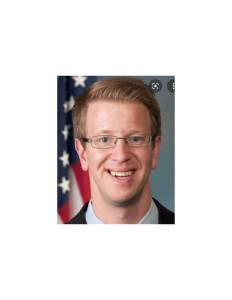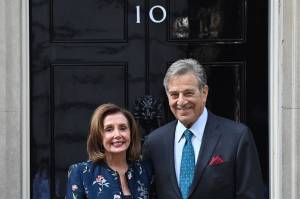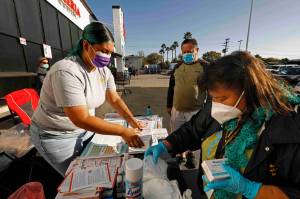Why Elizabeth Warren’s biggest 2020 competition might be Kamala Harris
Published 5:30 pm Wednesday, July 24, 2019
By Alex Roarty and Ben Wieder
McClatchy Washington Bureau
WASHINGTON, D.C. — Stephanie Ellis-Smith is one of many well-educated, female Democrats facing a new dilemma: She’s having trouble deciding between Elizabeth Warren and Kamala Harris.
The philanthropic adviser from Seattle has long been impressed by Warren’s detailed policy agenda, but was also struck by Harris’ commanding performance in the first Democratic debate. She’s among hundreds of donors who wrote checks to both candidates in the last fundraising period.
“My heart so far has been with Elizabeth Warren, but after the debate I’ve been giving Kamala Harris a second look,” Ellis-Smith said.
As they rise to the top of 2020 Democratic presidential field, Harris and Warren are increasingly in direct competition for many of the same voters and donors, according to polls and fundraising data, with each drawing support from the party’s more affluent, college-educated wing — particularly women.
The overlap between their supporters might be a surprise, especially for Warren, who is usually portrayed as being in direct competition with fellow liberal stalwart Bernie Sanders. But Warren’s strongest support so far has come from the same group of voters that is critical to Harris’ path to the nomination.
“A lot of people handicapped the race with Warren competing for voters in the Bernie wing of the party,” said Brian Fallon, a Democratic strategist and former Hillary Clinton campaign aide. “And it turns out that a lot of Clinton voters like Warren too, and she’s competing for voters in both lanes.
“And that lane definitely puts her in competition with Harris for some of those center-left college-educated women,” Fallon added. “Both of them have higher ceilings than others with those voters.”
Recent polls have underscored just how much support Warren and Harris each receive from white, college-educated voters — and how much room to grow they still have with this group.
In polling results shared with McClatchy, Quinnipiac University found that 24% of white, college-educated voters backed Warren earlier this month, compared with 21% for Harris.
Joe Biden placed third among those voters at 18%, despite having the top overall standing in the poll.
Harris and Warren also have the highest favorability scores among white, college-educated voters in many polls. A CNN survey this month showed that 83% of these voters had a favorable view of Warren, compared with 79% for Harris.
“People look at Harris and Warren as something new and refreshing,” said Bakari Sellers, a former Democratic state lawmaker from South Carolina who has endorsed Harris. “It’s not necessarily to do with their sex, but with their refreshing worldview and the way they look at politics and policy.”
Warren and Harris are increasingly competing for the same sources of money, too. More than 800 donors gave to both candidates between April and July, the highest overlap between any two Democratic presidential candidates during that period, according to a McClatchy analysis of the most recent fundraising reports.
“I admire and like what I’m hearing from both of those candidates,” said Houston attorney and major Democratic donor Amber Mostyn, who has contributed to both Harris and Warren. “The debates showed that both women have what it takes.”
A Morning Consult poll also found that a plurality of Warren and Harris supporters considered the other candidate as their second choice.
Even similar types of progressive activists are stuck picking from between the two candidates: When the liberal group Indivisible asked its mostly female membership after the debate which candidates they preferred, Warren and Harris each received more than 30% of the vote while the next closest, Biden, received just 10% of the vote.
Of the more than 18,000 members who responded, 86% said they were considering voting for Warren while 83% said the same for Harris. Pete Buttigieg was third, with just 61% of the group’s membership saying it would consider voting for him.
“Not just when you look at the horse race but when you look at net favorability, no matter how you cut it, Warren and Harris always rank in the top two across our movement,” said Maria Urbina, Indivisible’s national political director.
The coalitions each candidate is building don’t perfectly overlap. Harris still has more support among African Americans, though Warren has worked diligently to court leaders and activists in the community.
Some pollsters also say that Harris’ support within the party extends broadly to many key demographic groups, making her a natural rival for several of the top candidates.
“You can do a story about Harris’ crossover with almost any other candidate in the field,” said Patrick Murray, director of the Monmouth University Polling Institute, which has extensively polled the Democratic presidential primary.
And Warren still draws heavy support from the wing of the party that supports Sanders. She and Sanders shared roughly 700 donors in common during the most recent fundraising period, compared with about 100 for Harris and Sanders.
Democratic strategists say Harris and Warren’s appeal has as much to do with style as substance.
“Voters don’t necessarily view all candidates strictly in terms of ideology,” said Rebecca Katz, a progressive strategist. “There’s an old adage: ‘Who would you rather have a beer with?’ Voters want to like who they vote for. And they want someone who is authentic.”




